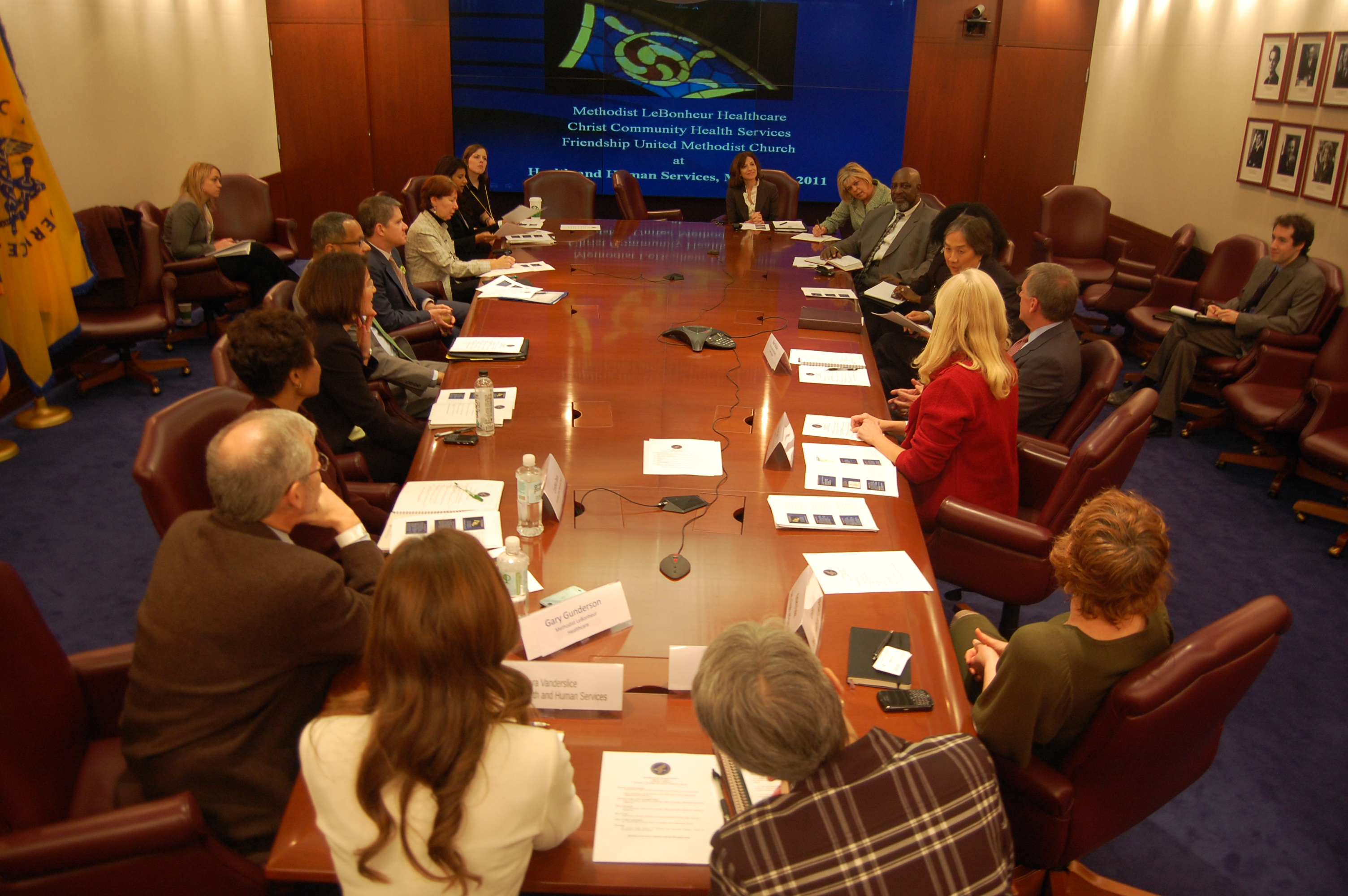
Recently, the HHS Partnership Center invited senior staff at the Department of Health & Human Services to meet with staff from Methodist LeBonheur Hospital of Memphis, Tennessee to learn more about their innovative community, faith-based health model. Informally called the “Memphis Model,” this health network serves as a partnership between local hospitals, congregations, community health centers, as well as faith-based and community organizations. The objective is to show that through engaging faith communities in collaborative partnerships, health providers can not only build capacity in local communities, but also to map viable health assets.
Sitting inside the Secretary‘s conference room, we listened as Gary Gunderson, Senior Vice President at Methodist LeBonheur Healthcare described Memphis’ healthcare challenges through lyrical statistics that told a story of heartache and despair like many of the blues records the city is famous for. “Music and Faith are our assets…,” said Gunderson. With faith as the foundation, the Memphis Model builds upon the strong infrastructure of churches to reach deep into hard-to-reach and underserved communities.
Dr. Cynthia Davis, Senior Pastor, Friendship United Methodist Church spoke passionately about the success of the model within her congregation where 98% of members participate. “People come to churches…they trust us…,” she said. Dr. Davis spoke about going to the hospital with members of her congregation and making sure they are cared for in the hospital and when they return home.
This holistic healthcare approach is accomplished through the Congregational Health Networks (CHN), which employ “health navigators” that identify congregations to participate in the program. To date there are nearly 400 congregations signed up as part of the Memphis Model. Each congregation then chooses 2 to 3 liaisons to work with the navigators on public health outreach.
Through these volunteer liaisons, individuals and families within the CHN are connected to additional healthcare guidance and support. “The volunteers think of it as faith work not health work,” added Gary Gunderson. Along with the liaisons, each congregation in the network enters into a “covenant” with the hospital. The CHN has built a coalition of nearly 400 congregations with hospitals, community health centers and privately funded clinics to promote public health to local communities.
Our meeting in Washington, DC built upon a delegation of HHS officials traveling to Memphis to see the Memphis Model in action. We visited several communities and organizations that comprise local health assets in the Memphis Model.
Our Center plans to work with the White House and HHS to spread the word about this innovative model to other interested communities.
If you have information on similar programs happening within your community, please let the HHS Partnership Center know. Send an email to partnerships@hhs.gov.
Mara Vanderslice is Acting Director and Senior Advisor at the Center for Faith-Based and Neighborhood Partnerships (The Partnership Center) at the U.S. Department of Health and Human Services.


